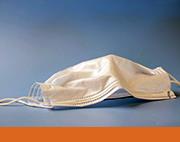COVID-19 Testing: Rapidly Changing Developments
 On Aug. 27, 2020, the Centers for Disease Control and Prevention reported that almost 80 million tests for COVID-19 had been performed within the United States. This level of testing is larger than any other country in the world. Over 100 emergency use authorization (EUA) tests have been authorized by the Food and Drug Administration (FDA) to date to allow for diagnosis of antibodies or antigens to SARS-CoV-2, the virus that causes COVID-19. Yet most Americans would acknowledge that there are still testing shortages in the United States and that test results take far too long to process to meaningfully mitigate the spread of the disease.
On Aug. 27, 2020, the Centers for Disease Control and Prevention reported that almost 80 million tests for COVID-19 had been performed within the United States. This level of testing is larger than any other country in the world. Over 100 emergency use authorization (EUA) tests have been authorized by the Food and Drug Administration (FDA) to date to allow for diagnosis of antibodies or antigens to SARS-CoV-2, the virus that causes COVID-19. Yet most Americans would acknowledge that there are still testing shortages in the United States and that test results take far too long to process to meaningfully mitigate the spread of the disease. AGD is supportive of point-of-care testing. For AGD members who may be interested in applying for a Clinical Laboratory Improvement Amendments certificate of waiver, AGD has developed information to guide you through the process.
In an effort to spur testing innovation, the National Institutes of Health (NIH) generated the Rapid Acceleration of Diagnostics program in late April 2020. The NIH partnered with the Office of the Assistant Secretary of Health, the Department of Defense, and the Biomedical Advanced Research and Development Authority (BARDA) to develop a “shark tank” approach to COVID-19 testing.
Notwithstanding those developments, the private sector is moving quickly with new tests that may soon provide affordable, available point-of-care tests. On Aug. 25, the FDA granted Abbott Laboratories an EUA for a 15-minute COVID-19 test to be priced at $5. The test will use a nasal swab and can be administrated by healthcare workers in many settings. Output is expected to reach 50 million tests by October 2020.
Another test by biotechnology company Fluidigm, also approved by an EUA Aug. 25, allows people to test their saliva by spitting into small test tubes. The results are to be available in hours.
The University of Illinois also developed a “home brew” or laboratory-developed test (LDT) to examine every person on campus twice a week. The saliva test accounts for 20% of all tests administrated in the state of Illinois. Results are available within five hours. Of note, the FDA is ceding control of LDTs to the Centers for Medicare & Medicaid Services (CMS). Unfortunately, the FDA already expended significant resources on review of LDTs during the pandemic, when these tests traditionally have been overseen by the CMS.
Finally, controversy is brewing on the sensitivity of polymerase chain reaction (PCR) tests. Some scientists believe that the threshold for most PCR tests is set too low and measures fragments of the virus when we should be testing for the amount of virus in the patient’s body.
The AGD Dental Practice Council is closely following testing and regulatory developments. Updates are posted on the AGD COVID-19 page and on the AGD Advocacy page.
For more on testing:
FDA Testing and COVID-19: A “Mid-Mortem”
http://www.fdalawblog.net/2020/08/fda-testing-and-covid-19-a-mid-mortem/
In Support of the New HHS Policy Barring FDA from Premarket Review of LDTs
http://www.fdalawblog.net/2020/08/in-support-of-the-new-hhs-policy-barring-fda-from-premarket-review-of-ldts/
Atlantic: The Plan That Could Give Us Our Lives Back
https://www.theatlantic.com/health/archive/2020/08/how-to-test-every-american-for-covid-19-every-day/615217/
